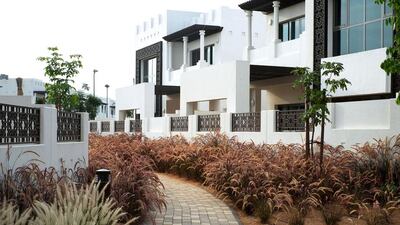Many property investors buy into the market for the potential capital appreciation returns. Dubai and Abu Dhabi have had some huge historical price spikes, and those who bought low and sold high have made some excellent returns. These huge price appreciations have happened so often that investors sometimes focus on the price appreciation and neglect the income they could be getting from the property as a legitimate reason for the investment in the first place.
We see this in the UAE, particularly with owners sitting on a land bank waiting for it to appreciate, all the time paying the interest on the bank loans, or the rich investors that buy luxury villas using cash and then leave them empty, waiting for an upturn in the market.
So what to do now in a more stable market where house prices are at best flat?
How can you maximise your returns from the rent you are getting on your investment properties, even if you bought them hoping for capital appreciation?
Let us consider an example to illustrate how you can maximise your rental yields. Take a property worth Dh1 million being rented out at Dh70,000 per year, net of all costs such as service charges.
If you have no debt on the property then your net income from the property is Dh70,000 per year. You have used Dh1m cash to purchase the property and you are getting Dh70,000 per year net from it – this means for every Dh1 cash you used, you are earning 7 fils per year return, or a 7 per cent return.
Now consider the situation where you have bought the property with Dh250,000 cash (25 per cent) and Dh750,000 finance (75 per cent), at 5 per cent interest, so that your bank repayments are Dh37,500 per year. Your income from your rent is still Dh70,000 per year but you now have financing costs for your loan in the amount of Dh37,500 per year, meaning your net income from the property ends up being Dh32,500 per year (rent less financing costs).
Now on the face of it this seems like a much lower return than if you pay in cash, but instead of Dh1m you have only used Dh250,000 of your own money to purchase the property. You are getting Dh32,500 per year net income from it – this means for every dirham cash you used you are getting 13 fils per year return, or 13 per cent. If you take into account the fact that some of the money you pay in financing costs also goes towards paying off your loan, then these returns get even better.
This looks like a trick, and I have to run the sums several times before believing it. How can borrowing more money increase your returns? Even if the maths is a stretch for you, the bottom line is the bank is lending you dirhams at 5 per cent and you are getting a return of 7 per cent, so you are making 2 per cent on each dirham you borrow. It seems counter-intuitive, but putting more money into your house (paying off debt) actually decreases your returns.
So what does this mean in a practical sense? First, adding debt can be a great way to turn ordinary rental returns into sparkling ones. However, you should note that if the returns from your rent are lower than what you are borrowing from the bank at, then loading debt on only increases your losses.
Increasing debt on your property also frees up capital to invest in other areas, diversifying your investment portfolio. It is a great way to spread your risk from an overweighted property allocation without denting your rental yields and can be particularly useful in an uncertain property market.
Also, if you are positive on the real estate market you can use the cash you release to invest in other property knowing now that your returns will be better if you use as little cash as possible.
So the more debt you are using on your property, the better return you will get for the money you have put into it.
Now, “loading with debt” has some pretty obvious negative connotations, as it is one of the ways the banks fell into trouble in 2008. Banks had been borrowing cheaply and lending out at a margin but suddenly they couldn’t borrow any more and the cost of their debts went up. This investment approach on your property is very lucrative but it has its pitfalls, so be very sure that you can make the repayments on your property should something unexpected happen.
Ben Crompton is the managing director of Crompton Partners Estate Agents

